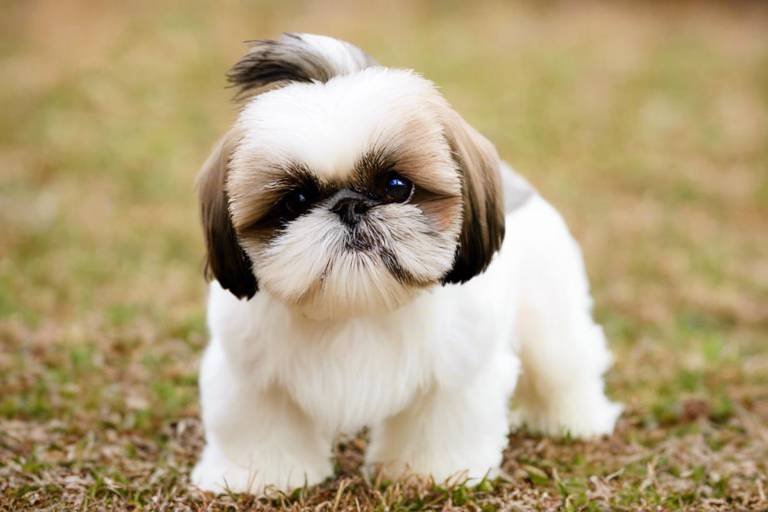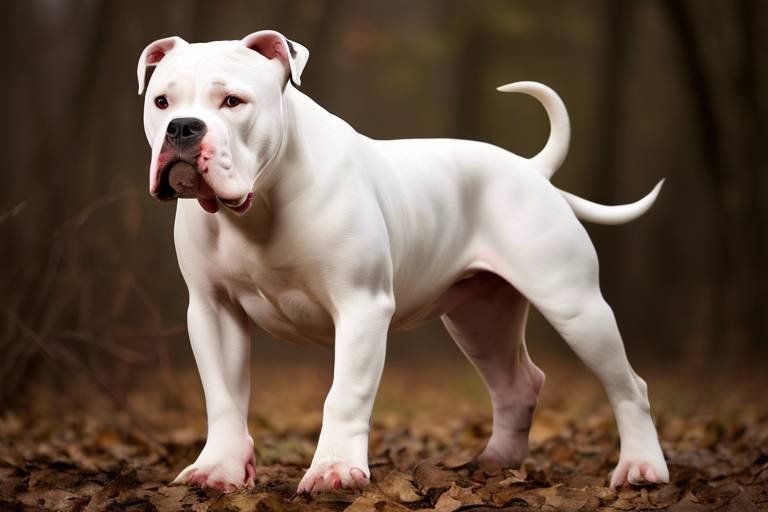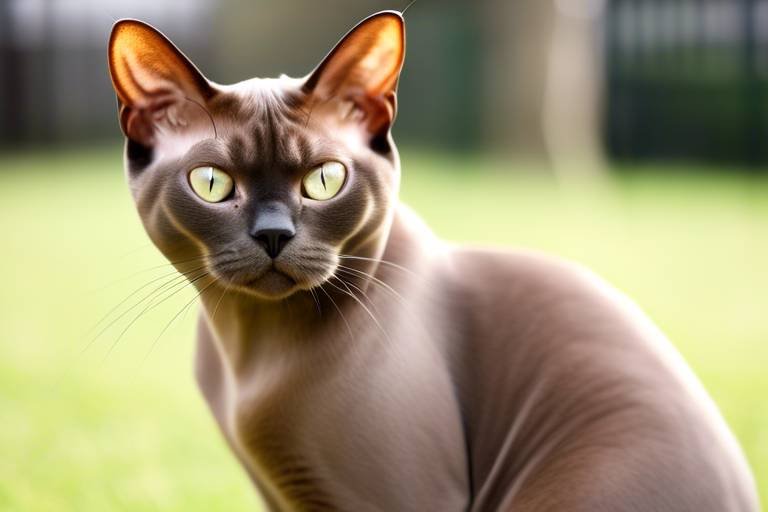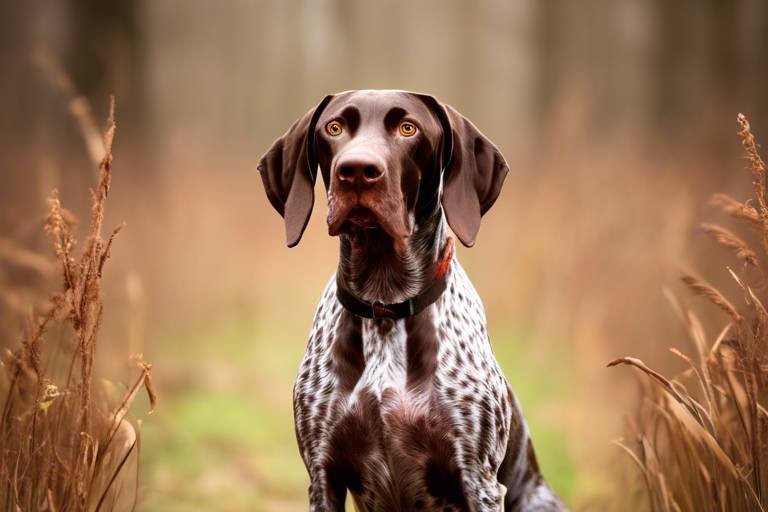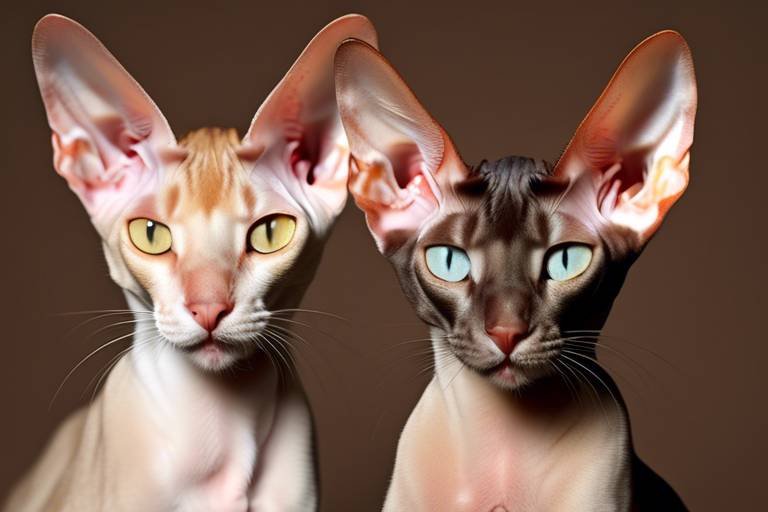A Guide to Understanding the Shih Tzu
Welcome to the wonderful world of Shih Tzus! These adorable little furballs have captured the hearts of many dog lovers around the globe. With their charming personalities, distinctive looks, and regal history, Shih Tzus are more than just pets; they are family members. In this guide, we will take a deep dive into everything you need to know about this delightful breed, from their ancient origins to their modern-day care requirements. Whether you’re a seasoned Shih Tzu owner or considering bringing one into your home, you’re in for a treat!
The Shih Tzu has a rich history that dates back to ancient China, where they were cherished as companions by royalty. These little dogs were often seen as symbols of luxury and were bred to be lap dogs for the emperors and their families. The name "Shih Tzu" translates to "Lion Dog," which reflects their regal stature and appearance. Over the centuries, these dogs have evolved, but their affectionate nature and loyalty have remained constant.
Shih Tzus are known for their distinctive appearance, featuring a broad skull, short muzzle, and large, expressive eyes. Typically weighing between 9 to 16 pounds, they stand about 9 to 10.5 inches tall at the shoulder. Their coat is long and flowing, often requiring regular grooming to keep it looking its best. Shih Tzus come in various colors, including:
- Black
- White
- Gold
- Brindle
- Various combinations
This unique appearance truly sets them apart from other breeds, making them one of the most recognizable dogs around.
Proper care is essential for a healthy Shih Tzu. These dogs thrive on a balanced diet, regular exercise, and routine veterinary check-ups. A high-quality dog food that meets their nutritional needs is crucial. Since Shih Tzus are prone to obesity, keeping an eye on their weight is vital. Daily walks and playtime are essential for their physical and mental well-being. Regular vet visits help catch any potential health issues early on, ensuring your furry friend stays happy and healthy.
Training a Shih Tzu can be both rewarding and challenging. Their intelligent nature makes them eager to learn, but they can also be a bit stubborn. Positive reinforcement techniques, such as treats and praise, work wonders with this breed. Socialization is equally important; exposing your Shih Tzu to various environments, people, and other pets helps them grow into well-rounded adults. Remember, consistency is key!
Understanding potential health issues is crucial for Shih Tzu owners. Common health problems include:
- Respiratory issues due to their short muzzles
- Eye problems such as cataracts
- Skin allergies
Preventive measures, including regular vet visits and a healthy diet, can help mitigate these risks. Always keep an eye on your Shih Tzu’s behavior and health, and consult your vet if anything seems off.
Grooming is vital for keeping a Shih Tzu looking its best. Their long, luxurious coat requires regular brushing—ideally every day—to prevent matting and tangles. Bathing should be done every few weeks, depending on their activity level and coat condition. Many owners choose to take their Shih Tzus to professional groomers for a trim, especially if they prefer a shorter, more manageable coat.
Socialization plays an important role in a Shih Tzu’s development. Start socializing your puppy early by exposing them to different environments, such as parks, busy streets, and pet-friendly stores. Introducing them to various people and other animals helps them become more adaptable and confident. Remember, a well-socialized Shih Tzu is a happy Shih Tzu!
Shih Tzus have unique personalities that make them a joy to be around. They are known for their affectionate nature and loyalty to their families. However, they can also be a bit stubborn at times, which might require some patience during training. Their playful antics and loving demeanor often bring laughter and joy to any household. It's no wonder they are such beloved companions!
Shih Tzus are beloved for their companionship. Their sociable nature allows them to adapt to various living situations, whether in a small apartment or a large house. They thrive on human interaction and are known to be great with children and other pets. The joy they bring to families is immeasurable, making them the perfect addition to any home.
Here are some common questions prospective Shih Tzu owners often ask:
- How long do Shih Tzus live? Typically, Shih Tzus have a lifespan of 10 to 16 years with proper care.
- Do Shih Tzus shed a lot? They are considered low-shedding dogs, but regular grooming is essential to manage their coat.
- Are Shih Tzus good with kids? Yes! Shih Tzus are generally gentle and affectionate, making them great companions for children.
In conclusion, Shih Tzus are not just dogs; they are loving companions that bring warmth and joy into our lives. With proper care, training, and socialization, they will thrive and become cherished members of your family.

History of the Shih Tzu
The Shih Tzu, often referred to as the "Lion Dog," boasts a fascinating history that intertwines with the majestic past of ancient China. This breed's origins can be traced back over a thousand years, where they were cherished companions of Chinese royalty. The Shih Tzu was bred from a mix of the Tibetan Mastiff and the Pekingese, resulting in a small, regal dog that quickly became a favorite in the imperial courts.
During the Tang Dynasty (618-907 AD), these dogs were often seen in the palaces, where they enjoyed a life of luxury and comfort. They were not just pets; they held a significant place in the hearts of emperors and empresses. In fact, they were often given as gifts to foreign dignitaries, symbolizing wealth and status. The Shih Tzu's name, which translates to "Lion Dog," reflects their noble lineage, as they were believed to resemble lions, which were revered in Chinese culture.
As the centuries passed, the Shih Tzu's popularity continued to soar. However, their journey was not without challenges. The breed faced a decline during the Chinese Revolution in the early 20th century, as many royal households were dismantled, and the dogs were left abandoned. Fortunately, dedicated breeders worked tirelessly to revive the breed, and by the 1950s, the Shih Tzu began to regain its status as a beloved companion.
Today, the Shih Tzu is one of the most popular dog breeds worldwide, adored for their affectionate nature and charming personality. This little lion has truly transformed from a royal companion to a cherished family member in homes across the globe. Their rich history not only adds to their allure but also reminds us of the deep bond between humans and dogs throughout time.
In summary, the Shih Tzu's history is a testament to their resilience and enduring appeal. From the opulent courts of ancient China to modern-day households, these dogs have captured hearts and continue to bring joy to families. Understanding their history enriches the experience of owning a Shih Tzu, as it connects us to a legacy of love, loyalty, and companionship.
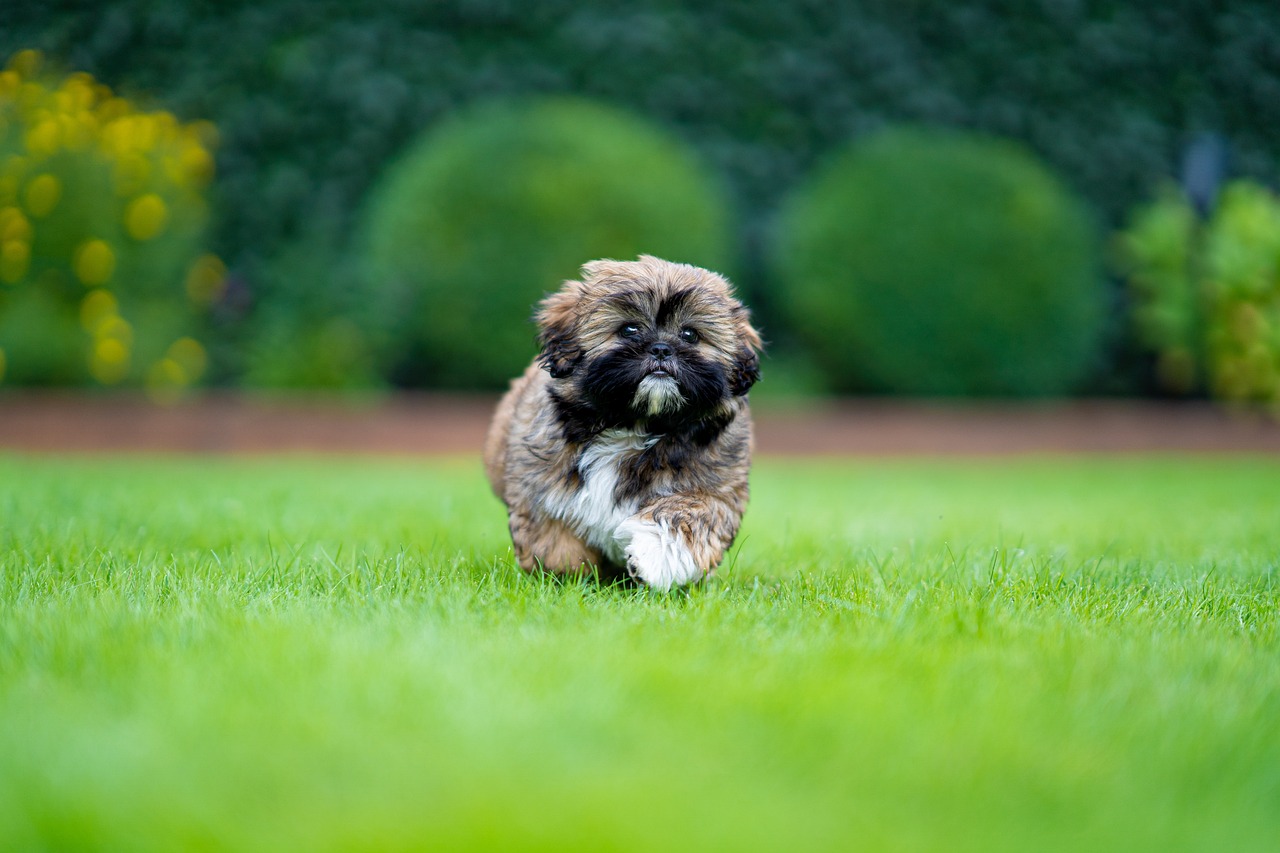
Physical Characteristics
The Shih Tzu is an enchanting breed that captivates dog lovers with its unique appearance and charming demeanor. These small, sturdy dogs typically weigh between 9 to 16 pounds and stand about 9 to 10.5 inches tall at the shoulder, making them the perfect lap companions. One of the most striking features of the Shih Tzu is its luxurious coat, which can come in a variety of colors, including gold, white, black, and a mix of these shades. The coat is long and flowing, requiring regular grooming to keep it looking its best.
The Shih Tzu's face is another defining characteristic, featuring a short muzzle and large, expressive eyes that often seem to radiate warmth and affection. Their round skull and flat face give them a distinctive look that is both adorable and endearing. This breed's ears are long and covered with hair, adding to their overall elegance.
When it comes to coat types, Shih Tzus can have either a double coat or a single coat. The double coat consists of a dense undercoat and a long, flowing outer coat, while the single coat is less thick but still requires regular maintenance. Regardless of the coat type, Shih Tzus are known for their hypoallergenic qualities, making them a suitable choice for allergy sufferers. However, it's essential to note that no dog is entirely hypoallergenic, so individual reactions may vary.
Here’s a quick overview of the Shih Tzu's physical characteristics:
| Characteristic | Description |
|---|---|
| Weight | 9 to 16 pounds |
| Height | 9 to 10.5 inches |
| Coat Type | Double coat or single coat |
| Colors | Gold, white, black, and combinations |
The Shih Tzu's body structure is compact and sturdy, with a broad chest and a slightly raised tail that curls over its back. This breed's posture and gait are characterized by a confident and proud demeanor, which adds to their regal appearance. Their playful nature and affectionate personality make them not just a pretty face but also a delightful companion.
In summary, the Shih Tzu is a breed that combines beauty and charm in a compact size. Their unique physical characteristics, from their luxurious coats to their expressive faces, make them stand out in the canine world. If you're considering adding a Shih Tzu to your family, be prepared for a furry friend that is as delightful to look at as they are to cuddle with!
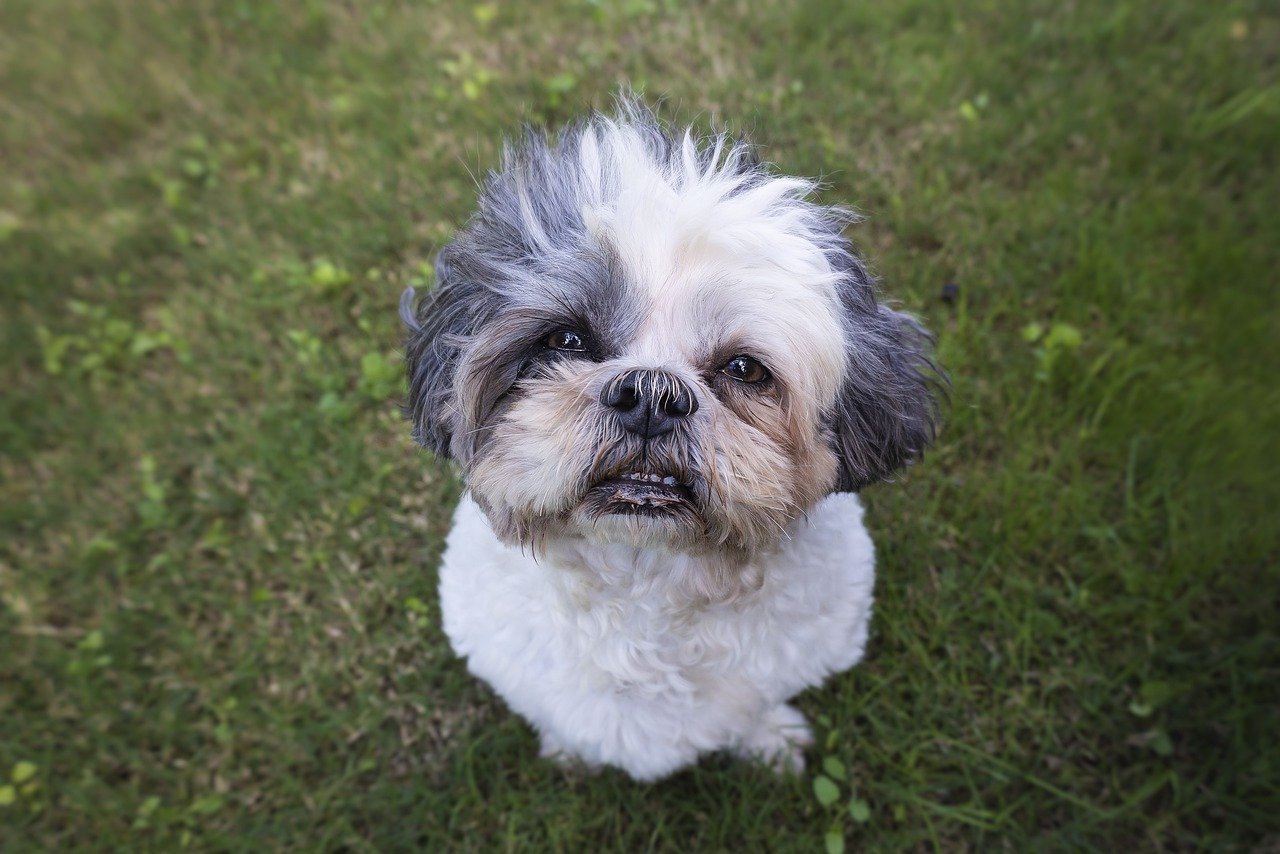
Care Requirements
Caring for a Shih Tzu is not just about providing food and shelter; it's about understanding their unique needs and ensuring they lead a happy, healthy life. These little bundles of joy thrive on attention and companionship, so it's essential to create an environment that caters to their emotional and physical well-being. One of the first things to consider is their nutrition. A balanced diet tailored to their specific age, weight, and health requirements is crucial. High-quality dog food, whether dry or wet, should be rich in proteins and essential nutrients. It's also wise to consult your veterinarian to determine the best dietary plan for your furry friend.
Next up is exercise. While Shih Tzus are small and don’t require extensive exercise, they still need daily walks and playtime to keep them fit and mentally stimulated. A brisk 20 to 30-minute walk each day, coupled with some interactive play, can do wonders for their energy levels. Think of it as a little adventure; after all, they love to explore their surroundings! Regular exercise not only keeps them physically fit but also helps prevent behavioral issues that can arise from boredom.
Another critical aspect of Shih Tzu care is routine veterinary check-ups. Regular visits to the vet ensure that your dog is up-to-date on vaccinations and allow for early detection of any potential health issues. Common health problems in Shih Tzus include eye conditions, hip dysplasia, and respiratory issues due to their brachycephalic (short-nosed) structure. Being proactive about their health can save you both time and heartache in the long run.
Moreover, it’s essential to monitor their grooming needs. Shih Tzus have long, luxurious coats that require regular brushing to prevent matting and tangles. Ideally, they should be brushed every other day. A good grooming routine not only keeps their coat looking fabulous but also allows you to check for any unusual lumps or skin irritations. If you're not up for the task, consider scheduling regular appointments with a professional groomer.
In summary, caring for a Shih Tzu involves a well-rounded approach that includes proper nutrition, regular exercise, routine vet visits, and attentive grooming. By meeting these care requirements, you can ensure that your Shih Tzu remains a healthy, happy, and cherished member of your family.
- How often should I take my Shih Tzu to the vet? It's recommended to take your Shih Tzu for a check-up at least once a year, but more frequent visits may be necessary for older dogs or those with health issues.
- Can Shih Tzus be left alone for long periods? Shih Tzus are social animals and do not like being left alone for extended periods. If you have a busy schedule, consider getting another pet for companionship.
- What type of food is best for a Shih Tzu? Look for high-quality dog food that lists meat as the first ingredient, and avoid foods with fillers like corn and soy. Always consult your vet for personalized recommendations.
- How often should I groom my Shih Tzu? Ideally, you should brush your Shih Tzu's coat every other day and schedule a professional grooming every 4 to 6 weeks.

Training Tips
Training a Shih Tzu can be both a rewarding and a challenging experience. These little bundles of joy are known for their affectionate nature, but they can also exhibit a touch of stubbornness. To successfully train your Shih Tzu, consistency is key. Imagine teaching your furry friend like guiding a child; patience and encouragement will go a long way. Start with simple commands like "sit" and "stay," and gradually introduce more complex tasks as they become more comfortable.
One effective strategy is to use positive reinforcement. This means rewarding your Shih Tzu with treats, praise, or playtime whenever they successfully follow a command. For instance, when your pup sits on command, shower them with affection and maybe a small treat. This method not only makes training enjoyable but also strengthens the bond between you and your pet. Remember, Shih Tzus thrive on attention, so make every training session a fun and engaging experience!
Socialization is another crucial aspect of training. Expose your Shih Tzu to different environments, people, and other animals from a young age. This helps them become well-rounded and confident. Consider taking them to dog parks or inviting friends over to interact with your pup. The more experiences they have, the better equipped they'll be to handle new situations without fear or anxiety.
It's also important to establish a routine. Dogs are creatures of habit, and having a consistent schedule for training sessions can help reinforce good behavior. Aim for short, frequent sessions rather than long, drawn-out ones. A good rule of thumb is to keep training sessions between 5 to 10 minutes to maintain your Shih Tzu's attention. You can gradually increase the duration as they become more focused and engaged.
Lastly, don’t forget the importance of patience. Every dog learns at their own pace, and some Shih Tzus may take longer to grasp certain commands than others. If your furry friend seems to struggle, take a step back and reassess your approach. Are you being clear in your commands? Are you offering enough rewards? Adjusting your methods can make a world of difference.
In summary, training your Shih Tzu requires a blend of love, patience, and consistency. By using positive reinforcement, socializing them early, establishing a routine, and maintaining a patient attitude, you can turn training into a delightful journey for both you and your pup. After all, a well-trained Shih Tzu is not just a joy to have around; they become a cherished member of your family!
- How long does it take to train a Shih Tzu? - Training duration varies, but with consistent practice, most Shih Tzus can learn basic commands within a few weeks.
- Are Shih Tzus easy to train? - They can be stubborn, but with the right techniques, they can learn effectively.
- What is the best age to start training? - It's best to start training as early as possible, ideally when they are puppies, around 8 weeks old.
- Can I train my Shih Tzu without professional help? - Yes, many owners successfully train their Shih Tzus at home using online resources and books.
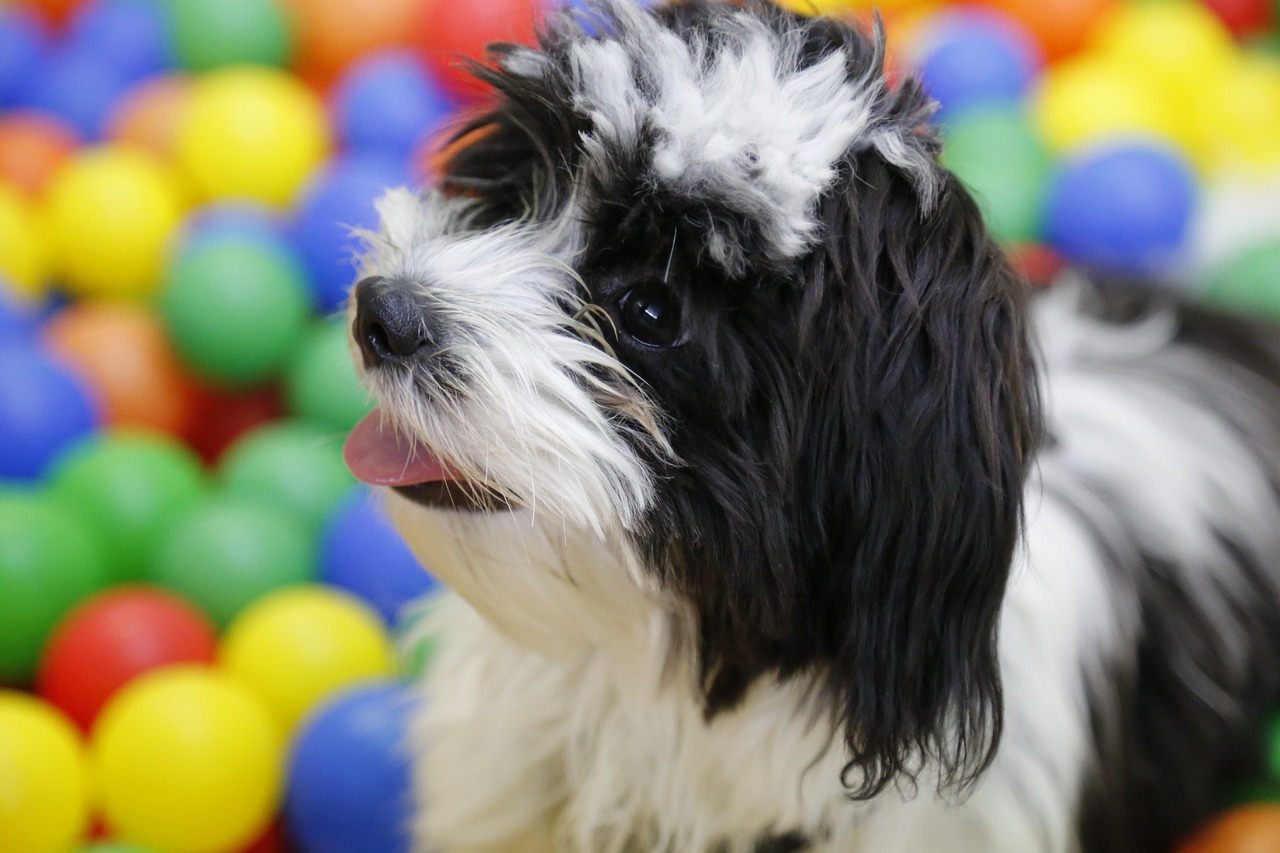
Health Considerations
When it comes to the health of your Shih Tzu, being proactive is key. These adorable little furballs are generally healthy, but they do have some breed-specific health concerns that every owner should be aware of. Understanding these issues can help you keep your pet happy and thriving. One of the most common health problems affecting Shih Tzus is brachycephalic airway syndrome. Because of their short snouts, they can struggle with breathing, especially in hot weather or during intense exercise. It's important to monitor their breathing and avoid strenuous activities on hot days to prevent overheating.
Another health consideration is eye problems. Shih Tzus are prone to conditions like cataracts and progressive retinal atrophy. Regular vet check-ups are essential to catch these issues early. Additionally, their large, expressive eyes need to be cleaned regularly to prevent tear staining and infections. To keep their eyes healthy, you might want to wipe them gently with a damp cloth daily.
Moreover, dental health is crucial for Shih Tzus. Due to their small mouths, they can develop dental issues like gum disease and tooth decay. To combat this, it’s advisable to brush their teeth regularly and provide dental chews to help keep their teeth clean. You might even want to consider professional dental cleanings from your vet. Here’s a quick table summarizing the common health issues and their preventive measures:
| Health Issue | Description | Preventive Measures |
|---|---|---|
| Brachycephalic Airway Syndrome | Breathing difficulties due to short snouts | Avoid strenuous exercise in heat, monitor breathing |
| Eye Problems | Cataracts, progressive retinal atrophy | Regular vet check-ups, daily eye cleaning |
| Dental Issues | Gum disease and tooth decay | Regular brushing, dental chews, vet cleanings |
Lastly, Shih Tzus can also be prone to skin issues, such as allergies and infections. Regular grooming not only keeps their coat looking fabulous but also helps you spot any unusual lumps or skin irritations early on. If you notice your Shih Tzu scratching excessively or if their skin appears red or inflamed, it’s best to consult your veterinarian.
In conclusion, while Shih Tzus can be susceptible to certain health issues, with the right care and attention, you can ensure they lead long, happy lives. Regular veterinary visits, a balanced diet, and proper grooming can go a long way in maintaining your furry friend’s health. Remember, a healthy Shih Tzu is a happy Shih Tzu!
- What are the common health issues for Shih Tzus? Shih Tzus are prone to brachycephalic airway syndrome, eye problems, and dental issues.
- How often should I take my Shih Tzu to the vet? Regular check-ups every 6 to 12 months are recommended to monitor their health.
- Can Shih Tzus have allergies? Yes, they can develop allergies that may cause skin irritations or digestive issues.
- What should I feed my Shih Tzu for optimal health? A high-quality, balanced diet specifically formulated for small breeds is ideal.
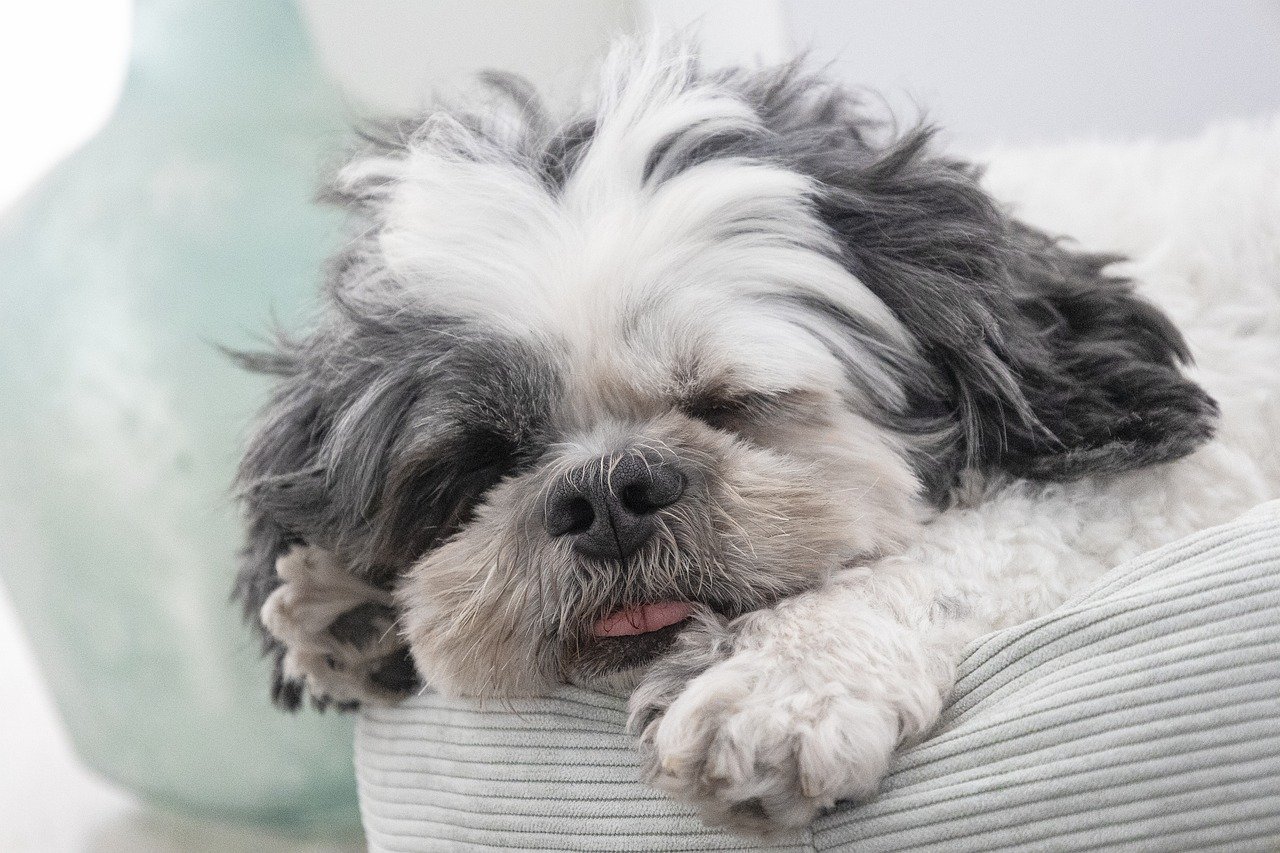
Grooming Needs
When it comes to the Shih Tzu, grooming is not just a chore; it's an essential part of their care that contributes to their overall health and happiness. With their long, luxurious coats, these little furballs require regular attention to keep them looking their best. Imagine having a beautiful, flowing mane that needs daily maintenance—this is the life of a Shih Tzu! To keep their coat shiny and free of tangles, you'll need to establish a grooming routine that suits both you and your furry friend.
First and foremost, brushing is a crucial aspect of Shih Tzu grooming. Ideally, you should brush your pup's coat at least two to three times a week, but daily brushing is even better, especially if your Shih Tzu has a longer coat. This helps to prevent mats and tangles, which can be uncomfortable for them. Use a slicker brush or a pin brush to gently detangle the fur without causing any pain. If you encounter a particularly stubborn knot, don’t be afraid to use a detangling spray formulated for dogs. Just like we sometimes need a little help with our hair, your Shih Tzu might appreciate it too!
Bathing your Shih Tzu is another important grooming task. Generally, a bath every three to four weeks is sufficient, but this can vary based on your dog's lifestyle and activity level. If your Shih Tzu loves to roll around in the grass or mud, you might need to bathe them more frequently. Always use a mild, dog-specific shampoo to avoid skin irritation. After bathing, make sure to thoroughly dry your dog's coat, as damp fur can lead to skin issues. A blow dryer on a low setting can help, but be sure to keep it at a safe distance to avoid overheating their sensitive skin.
In addition to brushing and bathing, you should also pay attention to your Shih Tzu's nails. Regular nail trimming is essential to prevent discomfort and potential injury. Ideally, you should trim their nails every two to four weeks, depending on how quickly they grow. If you're unsure how to trim their nails, you can always ask your veterinarian or a professional groomer for guidance. Think of it as giving your little friend a pedicure—it's a small but significant part of their grooming routine!
Another aspect of grooming that often gets overlooked is dental care. Just like humans, Shih Tzus can suffer from dental issues if their teeth aren’t properly cared for. Incorporating dental hygiene into their routine is crucial. You should aim to brush your dog's teeth at least a few times a week using toothpaste specifically designed for dogs. You can also provide dental chews or toys that promote good oral health. Remember, a healthy mouth is a happy mouth!
Finally, don’t forget about professional grooming. While you can manage a lot of grooming tasks at home, scheduling regular visits to a professional groomer can be beneficial. They can help with tasks like trimming the coat, cleaning the ears, and even expressing the anal glands if necessary. Think of it as a spa day for your Shih Tzu—a little pampering goes a long way in keeping them feeling and looking fabulous!
In summary, grooming your Shih Tzu is a multifaceted process that requires dedication and love. By establishing a consistent grooming routine that includes brushing, bathing, nail trimming, dental care, and professional grooming, you can ensure your furry companion remains healthy and happy. After all, a well-groomed Shih Tzu is not just a pretty face; it's a happy, healthy member of your family!
- How often should I groom my Shih Tzu? Ideally, you should brush your Shih Tzu's coat two to three times a week and bathe them every three to four weeks.
- What tools do I need for grooming? Essential tools include a slicker brush, dog-specific shampoo, nail clippers, and toothpaste for dogs.
- Can I groom my Shih Tzu at home? Yes, many grooming tasks can be done at home, but consider professional grooming for trimming and specialized care.
- How can I prevent mats in my Shih Tzu's coat? Regular brushing and using a detangling spray can help prevent mats and tangles.
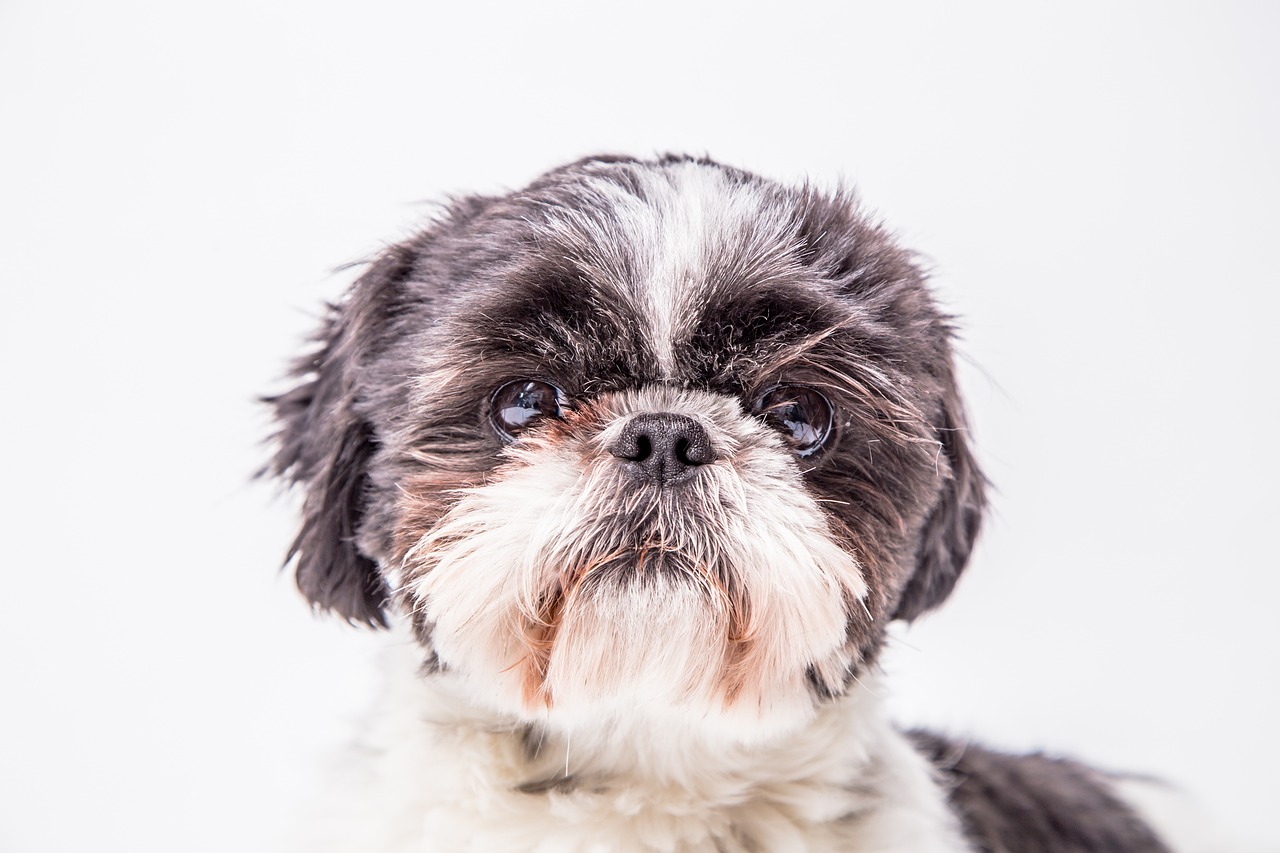
Socialization Techniques
Socialization is a crucial aspect of raising a well-adjusted Shih Tzu. Just like a child learns to interact with the world, your furry friend needs to be exposed to various environments, people, and other animals to thrive. Think of it as opening a door to a whole new universe for your pup! The earlier you start this process, the better equipped your Shih Tzu will be to handle different situations throughout its life.
One effective technique is to initiate positive experiences with different types of people and pets. Take your Shih Tzu to parks, pet-friendly cafes, or even pet stores. The key is to ensure that these interactions are positive and not overwhelming. If your dog seems nervous, give it time to adjust and encourage it with treats and praise. This is akin to introducing a shy friend to a party; you wouldn’t throw them into the crowd without a gentle nudge, right?
Another method is to engage in puppy classes or socialization groups. These classes not only teach basic obedience but also provide a controlled environment for your Shih Tzu to meet other dogs and people. It’s like a playdate with structure! Here, your dog can learn to navigate social cues from other dogs while you gain valuable insights into training techniques.
Additionally, you can create a socialization schedule that includes regular outings. For instance, you could plan weekly visits to new places or arrange playdates with other dogs. Below is a sample schedule to help you get started:
| Week | Activity | Location |
|---|---|---|
| 1 | Visit a dog park | Local Dog Park |
| 2 | Puppy class | Pet Training Center |
| 3 | Playdate with a neighbor’s dog | Home |
| 4 | Visit a pet-friendly café | Local Café |
Lastly, don’t underestimate the power of everyday experiences. Take your Shih Tzu for car rides, expose it to different sounds, and introduce it to various textures and surfaces. This gradual exposure helps your dog become more adaptable and confident. Remember, socialization is not a one-time event; it’s an ongoing process that should continue throughout your dog’s life. Just like us, our pets need to evolve and learn as they grow!
- How early should I start socializing my Shih Tzu? It's best to start socialization as early as possible, ideally between 3 to 14 weeks of age, when they are most receptive to new experiences.
- What if my Shih Tzu is fearful of new experiences? Take it slow! Allow your dog to observe from a distance and gradually introduce it to new situations. Use treats and praise to encourage positive associations.
- How do I know if my Shih Tzu is properly socialized? A well-socialized Shih Tzu should be comfortable around people and other dogs, showing curiosity rather than fear or aggression.
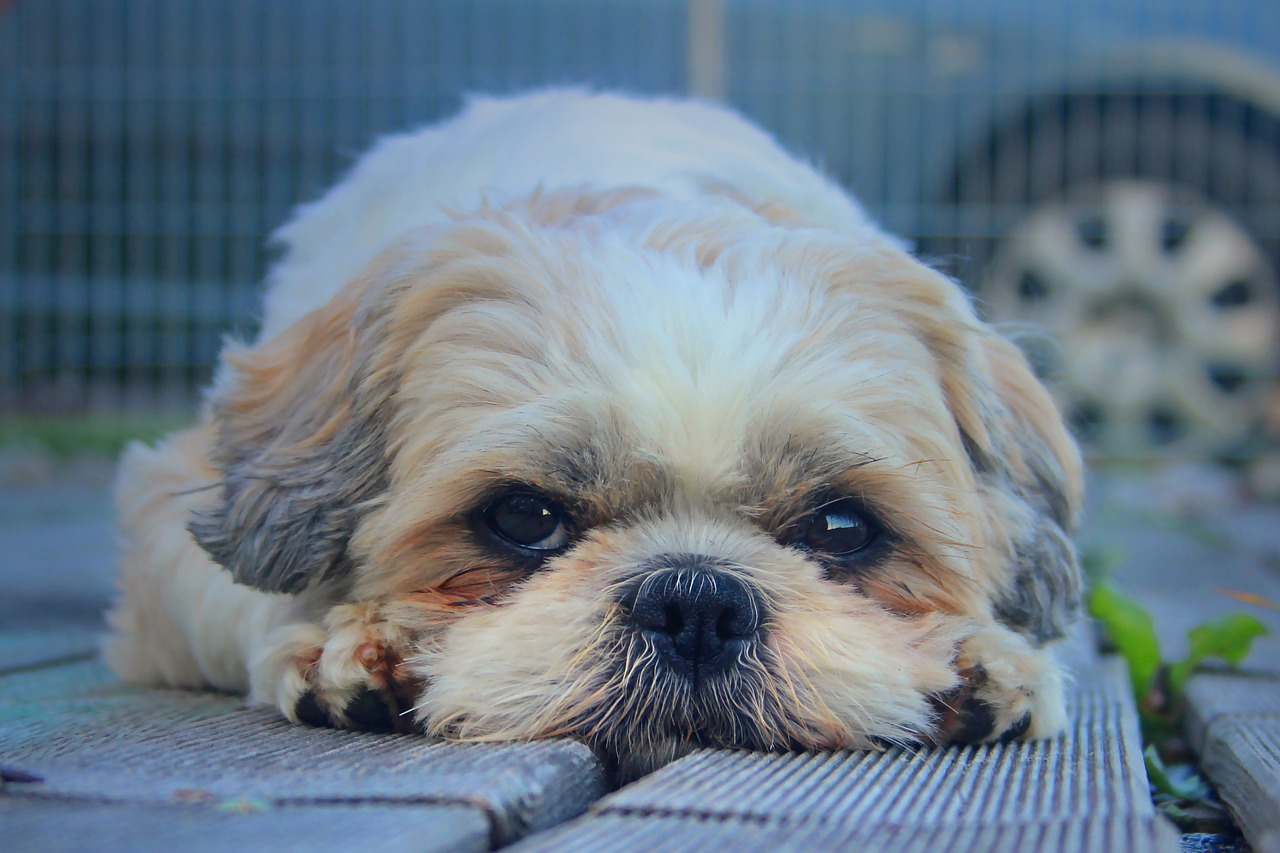
Common Behavioral Traits
The Shih Tzu is not just a pretty face; these little furballs have a personality that can light up any room! Known for their affectionate nature, Shih Tzus thrive on human companionship and love to be the center of attention. Imagine having a loyal friend who follows you around the house, always ready to cuddle or play. That’s your Shih Tzu for you! They are incredibly sociable and enjoy being around people and other pets, making them a perfect addition to families.
However, it’s essential to recognize that Shih Tzus can be a bit stubborn at times. This breed is known for its independent streak, which can make training a bit of a challenge. Think of it like trying to convince a toddler to eat their vegetables; sometimes, they just want to do things their way! Consistent and positive reinforcement training is key to overcoming this trait. With patience and love, you can guide your Shih Tzu to be the well-behaved companion you desire.
Another fascinating aspect of their behavior is their playfulness. Shih Tzus are known for their lively and playful demeanor. They love to engage in games, whether it’s a game of fetch or simply chasing after a squeaky toy. Their playful nature often leads to hilarious antics that can keep you entertained for hours. Just be sure to provide them with plenty of toys and playtime to keep them mentally stimulated and happy.
Shih Tzus also have a strong protective instinct, despite their small size. They may bark to alert you of strangers or unusual noises, showcasing their loyalty and willingness to protect their family. However, it's crucial to manage this behavior with proper training, as excessive barking can become a nuisance. Teaching them when to bark and when to be quiet will help maintain harmony in your home.
In terms of socialization, early exposure to different environments, people, and other animals is essential. This helps to prevent any fearfulness or anxiety as they grow older. A well-socialized Shih Tzu is generally more confident and adaptable. You might find it beneficial to enroll your pup in puppy classes or arrange playdates with other dogs to enhance their social skills.
Lastly, Shih Tzus are notorious for their affectionate cuddling. They often seek out laps to sit on and will snuggle up to their owners whenever possible. This trait not only makes them great companions but also helps to build a strong bond between you and your furry friend. Just be prepared for a lot of love and attention, as they will want to be with you every step of the way!
- Are Shih Tzus good with children? Yes, Shih Tzus are generally good with children and make excellent family pets due to their friendly and gentle nature.
- How much exercise do Shih Tzus need? Shih Tzus require moderate exercise, typically around 20-30 minutes of playtime or walks daily.
- Do Shih Tzus shed a lot? While Shih Tzus have hair instead of fur, they do shed, but regular grooming can help manage it effectively.
- Can Shih Tzus be left alone for long periods? Shih Tzus are social dogs and do not like being left alone for extended periods. They thrive on companionship.

Why They Make Great Companions
The Shih Tzu is often hailed as one of the most delightful companions you can have, and for good reason! These little furballs are not just pets; they are family members who bring joy and warmth into our lives. Imagine coming home after a long day, only to be greeted by the wagging tail and eager eyes of your Shih Tzu, ready to shower you with love. Isn’t that a heartwarming thought? Their affectionate nature and playful spirit make them incredibly endearing.
One of the standout qualities of Shih Tzus is their adaptability. Whether you live in a cozy apartment or a spacious house, these dogs can thrive in various environments. They don’t require a massive backyard to run around in; a small space will do just fine as long as they get their daily dose of love and attention. This makes them perfect companions for city dwellers and families alike. Plus, their moderate exercise needs mean they’re happy with short walks and playtime indoors.
Moreover, Shih Tzus are known for their loyalty. Once they bond with you, they become your shadow, following you from room to room. It’s as if they have an unspoken pact to be your best friend for life! Their loyalty extends to children and other pets, making them excellent family dogs. They have a knack for sensing emotions, and their comforting presence can brighten even the gloomiest of days.
Another reason Shih Tzus make great companions is their playful personality. They have a charming way of turning ordinary moments into fun adventures. From chasing after toys to engaging in playful antics, they can easily lift your spirits. Their playful nature encourages an active lifestyle, prompting you to engage in activities that you might have otherwise overlooked. Plus, their goofy quirks and adorable expressions are sure to make you smile!
It’s also worth mentioning that Shih Tzus are great conversationalists. They may not speak our language, but they certainly have a lot to say! Their expressive barks and playful growls can spark laughter and create an atmosphere of joy in your home. You might find yourself having one-sided conversations with your Shih Tzu, sharing your day, and seeking their “advice” on life’s little challenges. This connection fosters a bond that is both unique and fulfilling.
In terms of companionship, Shih Tzus have an innate ability to reduce stress. Studies have shown that spending time with pets can lower anxiety levels and promote a sense of well-being. Just petting a Shih Tzu can release oxytocin, the “love hormone,” which helps to alleviate stress and anxiety. Their gentle demeanor and loving nature provide comfort during tough times, making them invaluable emotional support companions.
In summary, Shih Tzus are more than just adorable dogs; they are loyal friends who adapt to various living situations, bring joy through their playful antics, and offer emotional support that can brighten your life. If you’re looking for a companion that will fill your days with love and laughter, look no further than the delightful Shih Tzu!
- Are Shih Tzus good with children? Yes, Shih Tzus are generally good with children and other pets, making them great family companions.
- How much exercise do Shih Tzus need? They require moderate exercise, such as short walks and playtime, to stay healthy and happy.
- Do Shih Tzus shed a lot? Shih Tzus have a long, flowing coat that doesn't shed much, but they do require regular grooming to prevent matting.
- Can Shih Tzus be left alone? While they can be left alone for short periods, they thrive on companionship and may experience separation anxiety if left alone for too long.
Frequently Asked Questions
- What is the average lifespan of a Shih Tzu?
The average lifespan of a Shih Tzu is typically between 10 to 16 years. With proper care, nutrition, and regular veterinary check-ups, many Shih Tzus can live long, healthy lives, bringing joy to their families for years.
- Are Shih Tzus hypoallergenic?
While no dog is completely hypoallergenic, Shih Tzus are known to produce fewer allergens compared to other breeds. Their long, flowing coats trap dander and hair, which can help reduce allergic reactions in sensitive individuals.
- How often should I groom my Shih Tzu?
Grooming is essential for Shih Tzus, and they should be brushed at least 2-3 times a week to prevent matting and tangles. Regular grooming sessions, including bathing and trimming, should be scheduled every 4-6 weeks to keep their coat healthy and beautiful.
- What type of diet is best for a Shih Tzu?
A balanced diet rich in high-quality protein, healthy fats, and essential vitamins is ideal for Shih Tzus. Look for dog food specifically formulated for small breeds, and consult your veterinarian for personalized dietary recommendations based on your dog's age, weight, and activity level.
- Do Shih Tzus require a lot of exercise?
Shih Tzus have moderate exercise needs. Daily walks and playtime are essential to keep them physically and mentally stimulated. However, they are generally adaptable and can thrive in both active and more relaxed environments.
- Are Shih Tzus good with children and other pets?
Yes! Shih Tzus are known for their friendly and affectionate nature, making them great companions for children and other pets. Early socialization is key to ensuring they develop good relationships with everyone in the household.
- What are common health issues in Shih Tzus?
Shih Tzus can be prone to certain health issues, including brachycephalic airway syndrome, eye problems, and hip dysplasia. Regular veterinary visits and being aware of any changes in behavior or health can help catch potential issues early.
- How can I train my Shih Tzu effectively?
Positive reinforcement is the best approach to training a Shih Tzu. Use treats, praise, and playtime to reward good behavior. Consistency and patience are crucial, as Shih Tzus can be a bit stubborn, but with the right techniques, they can learn a variety of commands and tricks.
- Why are Shih Tzus considered great companions?
Shih Tzus are known for their loving and loyal nature, making them excellent companions. Their playful demeanor, adaptability to various living situations, and affectionate personality bring immense joy to families, making them cherished pets.

